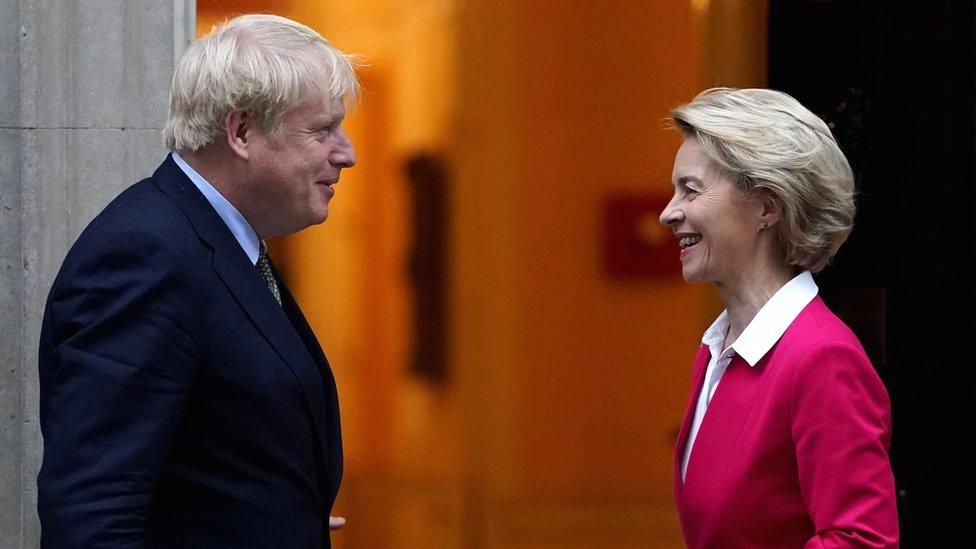Brexit: Price rises warning after chancellor vows EU rules divergence
- Published

Businesses have warned that food prices may rise and jobs may be affected after the chancellor vowed to end alignment with EU rules after Brexit.
Sajid Javid told the Financial Times, external the UK would not be a "ruletaker" after Brexit, urging businesses to "adjust".
The Food and Drink Federation said the proposals were likely to cause food prices to rise at the end of this year.
The Confederation of British Industry said for many firms, keeping existing EU rules would support jobs.
The automotive, food and drink and pharmaceutical industries all warned the government last year that moving away from key EU rules would be damaging.
'Death knell'
In an interview with Financial Times, the chancellor said the Treasury would not support manufacturers that favour staying aligned with EU rules, as companies had known since 2016 that the UK was going to leave the EU.
"Admittedly they didn't know the exact terms," he said.
The UK's 11-month transition period begins after it leaves the EU on 31 January.
Mr Javid declined to specify which EU rules he wanted to drop, but said some businesses would benefit from Brexit, while others would not.
He added: "There will not be alignment, we will not be a ruletaker, we will not be in the single market and we will not be in the customs union - and we will do this by the end of the year."
Tim Rycroft, chief operating officer of the Food and Drink Federation, told BBC Radio 4's Today programme that it sounded like the "death knell" for frictionless trade with the EU.
Acknowledging that some industries might benefit from Brexit, he said: "We also have to make sure the government clearly understands what the consequences will be for industries like ours if they go ahead and change our trading terms."
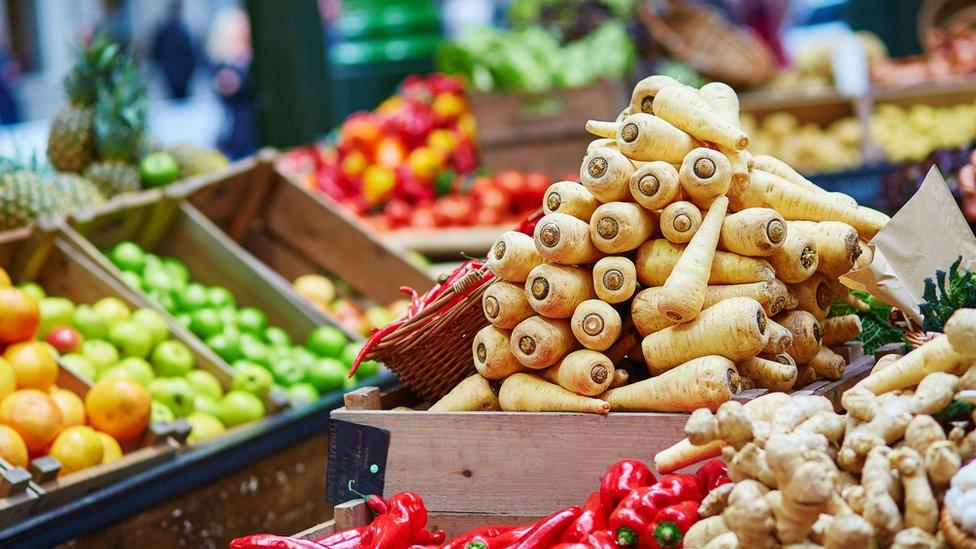
The Food and Drink Federation warned of price rises at the end of the year
The Confederation of British Industry (CBI) said it welcomed the chancellor's "ambitious" vision but said the government should not feel an "obligation" to depart from EU rules.
Carolyn Fairbairn, CBI director-general, said for many companies, "particularly in some of the most deprived regions of the UK", keeping the same rules would support jobs and maintain competitiveness.
The Society of Motor Manufacturers and Traders said the automotive industry in the UK and EU was "uniquely integrated" and its priority was to avoid "expensive tariffs and other 'behind the border' barriers".
It said it was vital to have "early sight" of the government's plans so companies could evaluate their impact.
And the Chemical Industries Association said: "The industry continues to support regulatory alignment with our European counterparts, which represents the largest single market for our products."
BBC business correspondent Katy Austin pointed out that the association's members were concentrated in the north of England, an area the government is particularly keen to be seen to support.
Shadow chancellor John McDonnell tweeted, external that Conservative promises about frictionless trade with the EU after Brexit were "now exposed as not worth paper they were written on".

Analysis
By BBC political correspondent Susana Mendonca
This tough tone from the chancellor appears to have a two-pronged intention.
Firstly, there's the message to business, which is, effectively, that Brexit is going to happen so just get on with it.
Getting on the wrong side of businesses has never been familiar ground for the Conservatives, but a majority government gives you the freedom to do the uncomfortable stuff.
It means the Tories can now be emboldened to say some companies will suffer because of Brexit in a way they never would have before. And with the general election now behind them, they can also pay little heed to warnings from the shadow chancellor that no alignment could lead to food shortages and job cuts.
The second motivation for this tough talk is likely to be about positioning ahead of the trade deal yet to be done with the EU.
The rhetoric around not being a "rule-taker" suggests the Conservatives want to be seen as preparing to have a tough battle with the EU to secure a deal without regulations - if they can.

The government has not yet agreed a future trading relationship with the EU - it plans to do so during the 11-month transition period.
During this period the UK will continue to follow EU rules and contribute to its budget.
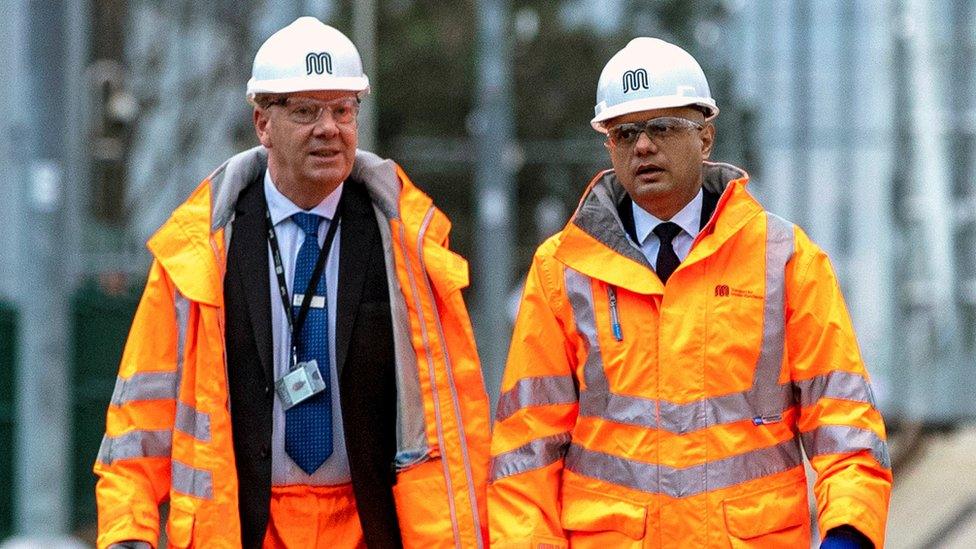
Sajid Javid (right) visiting Trafford Park Metrolink tram
'Bang for the buck'
The chancellor also said he wanted to double the UK's annual economic growth to between 2.7 and 2.8%.
The outgoing governor of the Bank of England, Mark Carney, told the Financial Times, external last week he thought the UK's trend growth rate was much lower, at between 1 and 1.5%.
Mr Javid said the extra growth would come from spending on skills and infrastructure in the Midlands and the north of England - even if they did not offer as much "bang for the buck" as projects in other parts of the country.
He also pledged to rewrite Treasury investment rules, which have tended to favour government investment in places with high economic growth and high productivity.
- Published18 January 2020
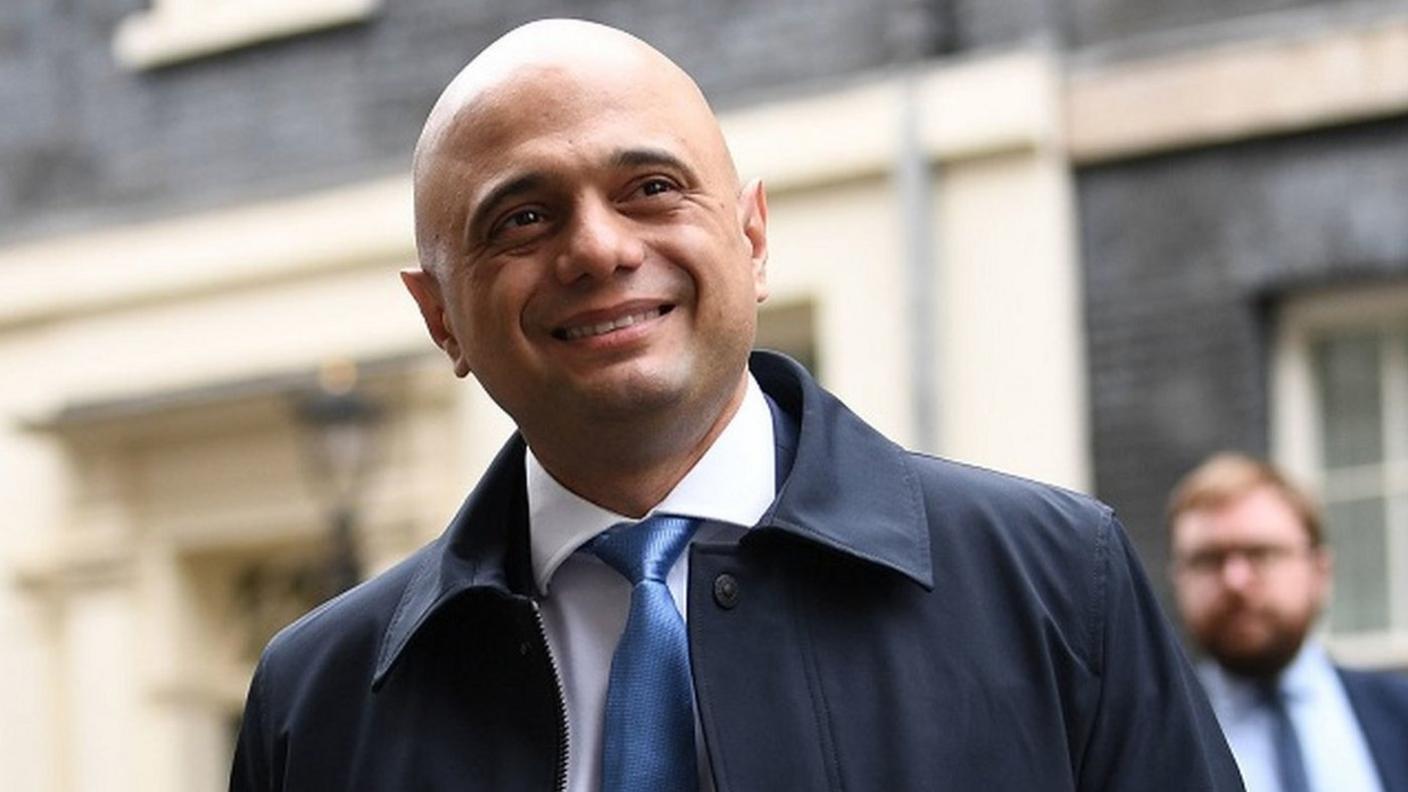
- Published3 December 2019
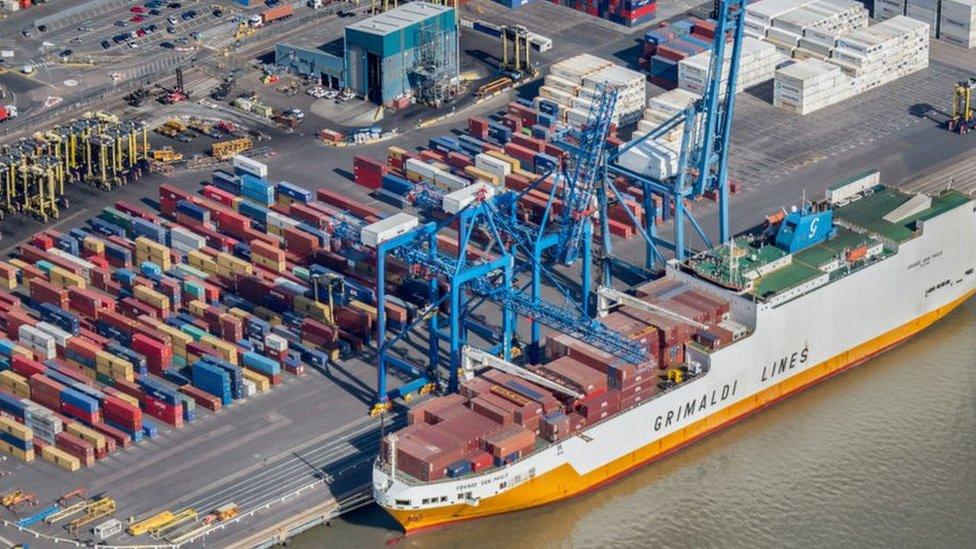
- Published13 July 2020
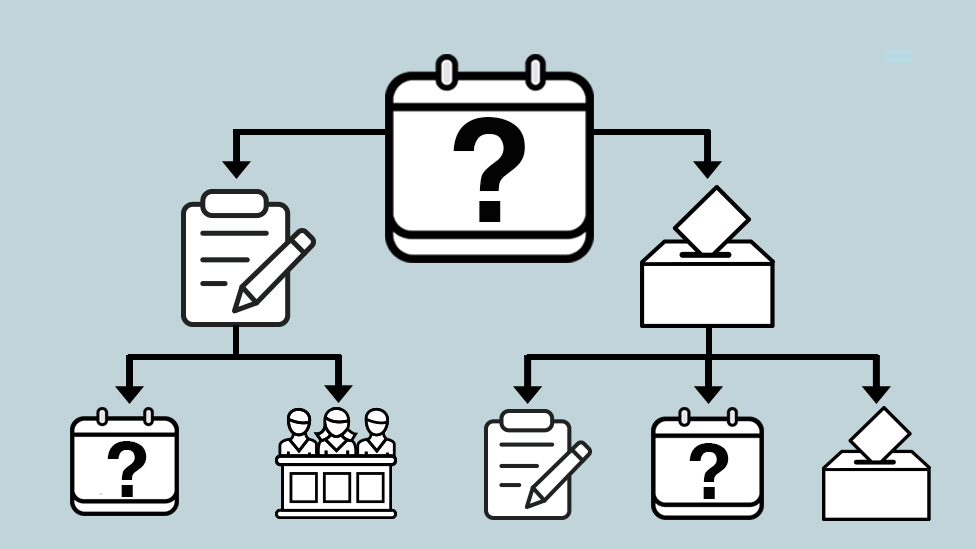
- Published17 January 2020
